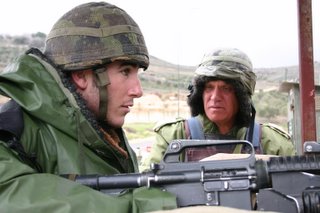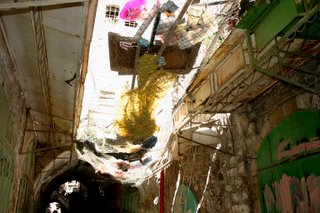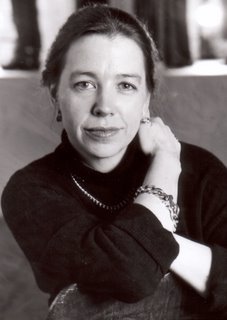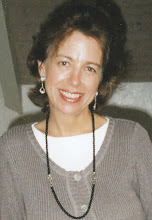
The Human Rights Organisation "Machsom Watch": Israeli Women Challenge Soldiers at the Checkpoints
Among my Israeli friends were several members of the women human rights organisation "Machsom Watch", which is the subject of the article below. I am, professionnally, a writer of documentary plays and fiction and have been used, in the past, to "rearranging" facts in order to give a more precise and complete account of the situations at hand. In the story that follows, I want to point out that all the quotes are genuine and that 90 % of the facts are the result of direct personal observations and experiences. However, in order to keep the article a reasonable length, I combined several visits to the checkpoints into a single one. In addition, the quotes of Aya Kaniuk are taken from an interview that is published on the website of Machsom Watch. I unfortunately did not meet Kaniuk, but her words are so important that I made her appear into my story, like a character of one of my plays. I apologize for this. I believe it makes the story all the more authentic and "true".
I met many other courageous members of Machsom Watch not mentioned in this particular feature (as well as activists of other human rights organisations, e.g. Physician for Human Rights). I have written elsewhere about them, including in the comprehensive diary I wrote in French about my journey. This will eventually be turned into a book.
The following article was written after the withdrawal from Gaza, but before Ariel Sharon's stroke.
Ruth Kedar drives like Schumacher on the straight, empty road that cuts through the barren Palestinian landscape: nothing but hills, rocks and dry bushes. “We call them 'Araber-frei'!” shouts the Jewish woman now in a derisive, angry tone — a black-humoured reference to the Nazi slogan “Juden-frei”, describing regions where the Jewish population had been eradicated in World War II. “Only Jews can drive on them, they are built for the settlers.” We have already crossed the Green Line which divides Israel from the occupied territories, and are racing through the no man's land created by the erection of a separation fence (sometimes a wall) deep inside Palestine.
Suddenly Ruth Kedar points out in the distance: “there it is: that's the checkpoint!” At 76, this tiny, bony woman of indomitable energy has gone back into active life: appalled by the misery imposed on the Palestinians by the Israeli occupation, she joined the women's human rights organisation “Machsom Watch” and stands vigil twice a week at one of the innumerable military road-blocks restraining movement in the land. No Palestinian can walk more than a few miles without reaching one of these check-points. To pass them, one needs an authorization that must constantly be renewed. Even with the right permit, crossing the barrier can take hours and is subject to the discretion of the soldiers in charge. More often than not, the Palestinians are denied passage. No explanations are given.
Yet, when they are watched, the soldiers more often than not restrain themselves. The women's presence, and sometimes their intervention, moderate the brutal scenes and shorten the hours of humiliation. Also, they are the only Israelis Palestinians ever see who are not in uniform, the only ones who exhibit human kindness. As an elderly Palestinian school principal who just crossed the checkpoint says: “knowing there are Israelis experiencing what we experience, if only for a few hours, eases my suffering and gives me some hope for a different future.”
Machsom is Hebrew for checkpoint. The first Israeli Machsom Watch groups were formed in January 2001 in response to press reports of abuse of Palestinians at the road-blocks. The founders were three Israeli women who set out three goals: to monitor the behaviour of Israeli soldiers and police, to ensure that the human rights of the Palestinians were protected, and to record their observations and make them known to the widest audience possible. Now there are over 400 members working three to a shift on a daily basis, standing twice a week for several hours at one of the check-points. They make notes, take photos, and sometimes address the soldiers directly to remind them of basic principles of ethics and human rights. They are all women and all Israeli, from a wide range of backgrounds. Most aren't young anymore: they are often called the “grandmothers of the checkpoints”.
“It is completely arbitrary” says Ruth Kedar. “In fact, arbitrariness is the rule. The point is to have no system: a Palestinian never knows whether he will reach on any particular day his destination, be it a school, a hospital, a workplace or his relatives. This effectively paralyses life. The aim is to force the residents to leave, so Israel can annex their land. In Qalqilia, 4000 have already left and gone East.”
There are a few veteran officers in charge but most of the guards are teen-agers, floating in their wide uniforms: several layers of green cloth topped by a bullet-proof jacket. Will they ever grow up to fill their costume? One of them is a girl that seems too small for the gun she is pointing at a traditionally dressed Palestinian woman who carries a huge basket on her head and a baby in her arms. A queue of Palestinians waits behind blocks of concrete. The soldier in charge whistles and waves his hand to call the next person in line and check his documents. A group of people, mostly young men, also a 30ish father with his small son, sit on the roadside in the mud. I am told they were refused passage but won't give up. They have been there several hours already. The little boy sits between the legs of his father, wide-eyed and silent. Kedar comments: “they don't cry. They've lost the habit. They know that nobody will come and help.”
The check-point is filthy, a real dump, nothing but garbage everywhere; there is a foul smell of rotten fruits; everything is humid and brown as it rained in the morning. I find quite a lot of rubber bullets lying around in the dirt, as well as a used sound grenade. I show them to Aya Kaniuk, another Machsom Watch activist. “Every now and then”, she explains, “children throw stones at the soldiers and they fire back. Many kids get badly hurt that way, some have died.” She shows me the different kinds of bullets: some are cylindrical and are made of hard rubber — they are the least lethal ones. The others are round, with a metallic core and a rubbery coat: these are the actual "killers".
Like her colleagues, Kaniuk goes to the checkpoints twice a week. “If it were up to me, that's all I'd be doing. You can't ignore it, you can't turn it off, so it's best to go there: when people cry from every corner, you can't just pursue your old goals.” During the long hours she spends at the checkpoints, she sees the arbitrariness and senselessness of the whole process: “the Palestinians are confined in pens, forbidden to move from place to place and punished for things they haven't done, only because this may theoretically prevent others from committing a crime. All this is done in the name of security! It's ridiculous: who do our people think they are kidding?”
Kaniuk has tears in her eyes. All the nightmares she has these days are centred on an existence that is not hers, she says. She wakes up from a nightmare that takes place in someone else's reality. When she first saw the destroyed houses, she dreamed about destroyed houses. In her dream she was everywhere: among the broken bricks, with the little girl looking for her book among the ruins.
We approach the barrier to watch the soldiers at work. They ignore us. Kaniuk takes notes and talks at the same time: “a couple of weeks ago, I saw a father with his little son standing in a long line. A soldier stepped back, with his back to the father, and gave the man a shove, apparently by accident. The man fell down, dragging his son with him. The soldier saw this, but continued walking. He did not gloat or enjoy seeing the two fall down; from his perspective, it just did not happen. The man got up, helped his son get up, dusted him and said nothing. To me, this image epitomises the occupation. A Palestinian man falling down means nothing. This invisibility is a metaphor for the whole situation.”
Kedar sees the soldiers themselves as victims, simple draftees who find themselves in an impossible situation and cannot be expected to act humanly: “they are children who have to carry out our government's wrong policies. They wear flak jackets and steel helmets even in the worst of heats, because they are afraid”. She describes an incident where the soldiers were under a lot of pressure, following a warning that a suicide bomber was on his way. They were nervous, aggressive to the point of brutality. “And here we come, a bunch of old ladies, looking like their grandmothers, and they tell themselves: if they're here, perhaps nothing bad will happen.”
Machsom Watch only accepts women, feeling that men act too aggressively and are too closely tied to the army (although women are also drafted). Most of the husbands and sons of the activists are members of an elite army unit. It is a question of social status, patriotism and competition. Men pretend not to be militaristic, but there is a rather romantic cult of the war hero in Israel, a country where people constantly feel threatened and believe that only the army can save them from destruction. Children learn at school the names of the well-known generals and the details of famous operations, like the liberation of the hostages at Entebbe. “Even men who support our movement find it hard to adapt to our 'soft-power' strategy,” says Kedar. “In fact, we play the Jewish grannies that try and revive the conscience of our children-soldiers.”
Many of the soldiers standing behind the concrete blocks and pyramids of sandbags indeed look like children playing war. But the game bores them. They stare blankly into the papers they are shown and don't seem to have a clue about what they should do. It is a widespread belief that doing service at the checkpoints corrupts the young soldiers' character: being in a position of power goes to their head and they start behaving like masters towards slaves, becoming brutal and arrogant. The enemy is dehumanised. One can humiliate him, hit him, even shoot him. At the end of their service, draftees are said to need months to get back to normality. Drug abuse is widespread.
On the way back to Tel Aviv, Kedar tells me how she lost her peace of mind, going to the checkpoints. “I have been totally engulfed. But despite the hardships, the cold weather and the long hours, I feel it is nothing I can give up.” Her personal life is inextricably interwoven with the history of the state. She represents the mainstream, Israel's Mayflower. She was born in Jerusalem. Her mother was a native Israeli; her father, a British Jew, was killed in the King David bombing in 1946 (a terror attack by the Jewish underground organisation “Irgun” that made 91 British victims). Her brother, an air force pilot, was killed in action. For 52 years she has been married to Paul Kedar, a prominent military officer who was army spokesman in Lebanon.
“In retrospect, my generation made a lot of mistakes”, she says. We were arrogant, perhaps, but we felt that we were building the country. Today, when I look at the result, the disappointment is terrible. My husband Paul, who started out as a radical right-winger (he was a member of the Irgun) is now dejected, totally disheartened by what is happening. He supports my work.”
Kedar has no illusions. There is no chance, she thinks, that she and her colleagues will be able to get rid of the system of military blocks. “But no one can tell me that these things do not happen and that the hundreds of checkpoints in the occupied territories really serve the security of Israel. I have seen it with my own eyes.”
In Israel, it is the women who lead the way for peace. For all Ruth Kedar's disillusion, they were successful once before: When Israel pulled out of Southern Lebanon in May 2000, after nearly two decades of war, a women's organization called Four Mothers was credited with helping rally Israeli public opinion behind the move. Right-wing politicians like Prime Minister Ariel Sharon, then the leader of the opposition Likud Party, harshly criticized the army pullout as caving in to the guerrilla tactics of Hezbollah, a fundamentalist organization backed by Iran and Syria, and argued it would hurt Israel's deterrence. But in countless interviews and opinion pieces, the Four Mothers — women who lost their sons in the Lebanon war — helped focus the debate not only on security issues but on the young lives that would be saved by putting an end to what was being labeled as Israel's Vietnam — a war against guerrilla fighters on foreign land with victory nowhere in sight.
The Four Mothers spawned about a dozen other women's peace and human rights groups, including Machsom Watch, which have been agitating for an end to the occupation of the West Bank and Gaza. But the battle is much tougher now. According to Kedar, “many people feel we're not occupiers and that the West Bank and Gaza is our land. In Lebanon, it was much clearer. There was a border and it was a different state."
Now the man who has a map of the greater Israel in his office, Premier Ariel Sharon, ordered the disengagement from Gaza. No one knows whether this was his first or last step towards the end of an occupation that started in 1967 and has poisoned the lives of generations of Palestinians and Israelis. According to Kedar, "he only did it in order to keep a large chunk of the West Bank. This won't work. We need to give back all of the occupied territories. Otherwise the war will never stop and in the end, our dream of a safe land for our children will be forever destroyed. No matter how strong, our army cannot, in the long run, subdue a whole civilian population. Even then, the Palestinians would end up with only 22 % of the original Palestine (i.e. the territory of the British Mandate). They have done all the compromises they can afford. The ball remains in our camp."





